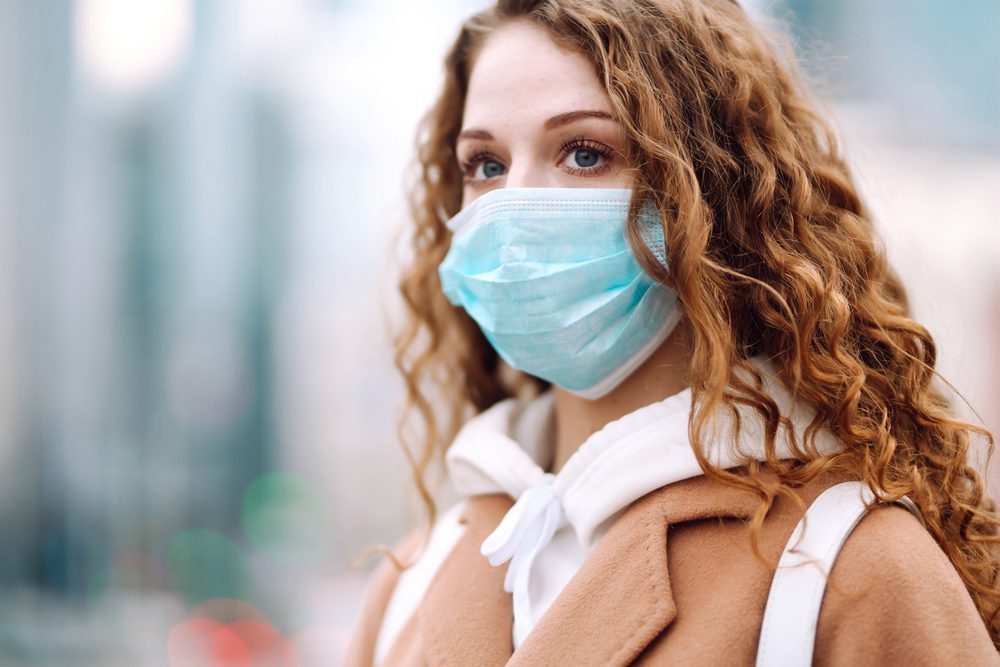Yesterday, the Council of Ministers approved the Royal Decree modifying the mandatory use of masks during the health crisis caused by COVID-19. The measure will enter into force on the same day of its publication in the BOE, i.e. today, April 20, 2022.
Article 6 of Law 2/2021, of March 29, on urgent measures of prevention, containment and coordination to deal with the health crisis caused by COVID-19, establishes, in its paragraphs 1 and 2, the cases of obligatory use of masks for persons 6 years of age and older, as well as the exceptions to this obligation.
Likewise, section 2 of the seventh final provision of the aforementioned law empowers the Government, by means of a royal decree, after consulting the Interterritorial Council of the National Health System, to modify the obligatory use of the mask in the cases provided for in article 6 when appropriate health circumstances so advise. The same provision stipulates that the elimination or modulation of the cases of mandatory use may only be agreed upon when an improvement in the epidemiological situation has been observed, in accordance with the system of indicators agreed upon by the Interterritorial Council of the National Health System.
Making use of the aforementioned authorization, the Government approved Royal Decree 115/2022, of February 8 (now repealed), which modifies the mandatory use of masks during the health crisis situation caused by COVID-19, leaving without effect the provisions of paragraphs 1 and 2 of Article 6 of Law 2/2021, of March 29, whose cases have been governed since then by the provisions of the aforementioned Royal Decree.
Non-mandatory use of face masks

Favorable evolution of the COVID-19 epidemicThe fact that the vaccination coverage achieved in Spain and the application of non-pharmacological measures to control the transmission of SARS-CoV-2 by the population until March 2022, allows us to consider modifications in the strategies for controlling the epidemic.
Vaccination coverage in Spain is above 92% in the population over 12 years of age and more than 92% of those over 60 years of age have received a booster dose that improves the protection of this population group against severe COVID-19 and death. Children aged 5 to 11 years, the population group that started the vaccination process the latest, has already reached coverage rates of over 40% with the full vaccination schedule. The vaccines used in Spain, according to available data, show an effectiveness, estimated by the screening method, greater than 90% to prevent serious illness and death from COVID-19. The very high effectiveness of the vaccines and the high coverage achieved have generated an important change in the epidemiology of COVID-19 in our country.
All the main epidemic monitoring indicators in force, according to the COVID-19 Surveillance and Control Strategy after the acute phase of the pandemic, are, according to the last report published on April 8, 2022, all at a low risk level in most of the territory.This places the alert at level 1 in 42 of the 52 provinces and at level 2 in 8 provinces. Two provinces no longer have an alert situation.
Disease severity has declined significantly between the pre- and post-vaccination period. Thus, according to data received through the National Epidemiological Surveillance Network, the hospitalization rate among cases has gone from an average of about 7% in the December 2020 to February 2021 epidemic wave to 1.19% in the December 2021 to March 2022 epidemic wave, while the ICU admission rate has varied from 0.67% to 0.06% and the case fatality rate has gone from 1.46% to 0.19% for the total population..
This effect is observed, with some variability in all age groups. Moreover, the pressure on the health care system has been much lower in this last epidemic wave than in the one mentioned as a reference. At present, hospital bed occupancy is 3.4% and ICU bed occupancy is 4%, both indicators being at very low levels compared to those detected throughout the epidemic.
Control Measures
The context described above makes it possible to adapt some of the transmission control measures that have been implemented. Specifically, this Royal Decree modifies the cases in which the use of face masks in indoor spaces is mandatory. The modulation of the measures included, proposed for the general population, should be assessed at the individual level according to membership in groups of greater vulnerability, vaccination and social activity and behavior that may increase the risk of transmission.
The National Health System’s Interterritorial Council’s (Consejo Interterritorial del Sistema Nacional de Salud) report on alerts, preparedness and response plans has carried out a risk assessment and has formulated specific recommendations on the use of masks for different areas and people. In this sense, the paper recommends the mandatory use of the mask in certain areas and people, and the responsible use of the mask in other cases.
This Royal Decree establishes the areas where the use of masks will continue to be mandatory. However, it is recommended for all persons with increased vulnerability to COVID-19 infection to continue to wear a facemask in any situation involving prolonged contact with persons at a distance of less than 1.5 meters.
Therefore, a responsible use of masks is recommended in enclosed public spaces where people transit or stay for a long time. Likewise, the responsible use of masks is recommended at large events. In the family environment and in private meetings or celebrations, responsible use is recommended depending on the vulnerability of the participants.
In the work environment, in general, the use of face masks is not mandatory. However, those responsible for occupational risk prevention, in accordance with the corresponding risk assessment of the workplace, may determine the appropriate preventive measures to be implemented in the workplace or in certain areas of the workplace, including the possible use of face masks, if this is derived from the aforementioned assessment.
Therefore, the use of masks is mandatory in these cases:

First of all, in health centers, services and establishmentsThese are areas where there may be a higher concentration of vulnerable people, where the risk of serious illness is greater and, on the other hand, where the probability of transmission is higher, since they are places where there may be a greater number of people with communicable respiratory infections, in addition to the COVID-19.
Secondly, attention must be paid to the specific situation of the social and health centers and, in particular, homes for the elderly. In these centers, the probability of transmission is also high, especially in the event of outbreaks, with a high impact on vulnerable people. Since the institution constitutes the domicile of the persons residing there, the permanent use of the mask would affect the well-being of these persons and, in addition, the persons inside the closed institution are not the source of infection, unlike the workers and visitors in contact with the outside, who may be the agents that introduce the virus. Therefore, it will be mandatory only for workers and visitors.
Finally, In transportation, a large population is concentrated in small spaces, with little interpersonal distance, sometimes for long periods of time. Although many transports have good ventilation systems with high-efficiency filters, this ventilation is not always guaranteed in all of them.. Therefore, in this area, the probability of transmission in the absence of a mask may be high, with a moderate impact considering the diversity of people exposed, among whom there could be some particularly vulnerable people. The obligation is therefore maintained in air, rail and cable transport, in public passenger transport and in the enclosed spaces of ships and boats, when the safety distance cannot be maintained. However, it has been considered that this obligation to wear a facemask should not be maintained for platforms and passenger stations.
Content of the new modification

This royal decree modulates the use of masks indoors, moving from mandatory use in all types of interiors to one focused on those places where a greater impact may occur in the event of transmission, such as health centers, services and establishments, social and health centers or public transport.
Therefore, in accordance with the provisions of paragraph 2 of the seventh final provision of Law 2/2021, of March 29th, having heard the CISNS at its meeting of April 6th, 2022, at the proposal of the Minister of Health, and after deliberation of the Council of Ministers at its meeting of April 19th, 2022, the obligation to use face masks is henceforth established in the following terms:
1. “Persons six years of age and older are obliged to wear masks in the following cases:
a) In health centers, services and establishments, as established in Royal Decree 1277/2003, of October 10, which establishes the general bases for the authorization of health centers, services and establishments, by workers, visitors and patients, with the exception of those persons admitted when they remain in their rooms.
b) In socio-sanitary centers, workers and visitors when they are in shared areas.
c) In air, rail, cable and bus transportation, as well as in public passenger transportation. In the enclosed spaces of ships and boats in which it is not possible to maintain the distance of 1.5 meters, except in cabins, when they are shared by groups of cohabitants.
2. The obligation contained in the preceding paragraph shall not be enforceable in the following cases:
a) To persons who present some type of disease or respiratory difficulty that may be aggravated by the use of the mask or who, due to their disability or dependence, do not have the autonomy to remove the mask or present behavioral alterations that make its use unfeasible.
b) In the event that, due to the nature of the activities, the use of the mask is incompatible, in accordance with the indications of the health authorities”.
Current article: https://www.legaltoday.com/actualidad-juridica/noticias-de-derecho/entra-en-vigor-la-no-obligatoriedad-de-las-mascarillas-2022-04-20/


